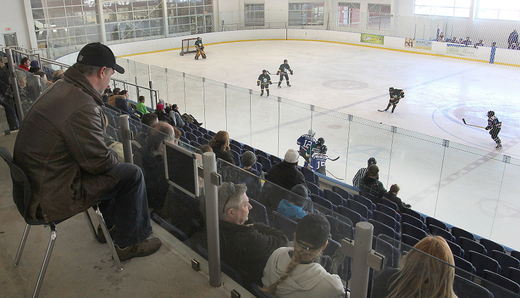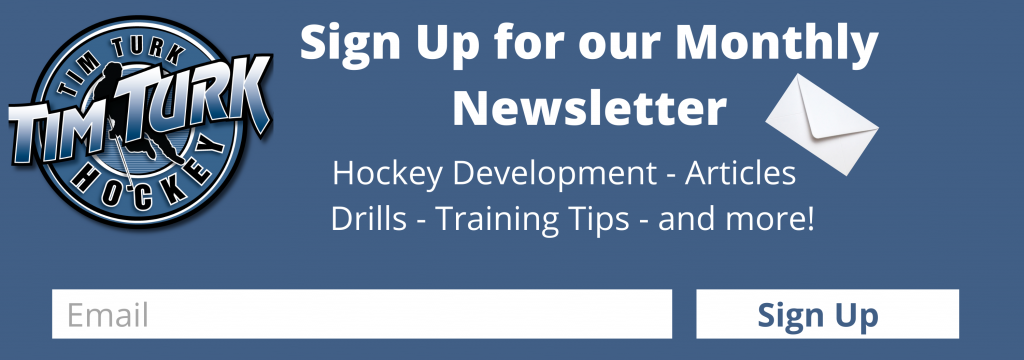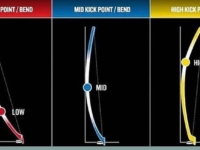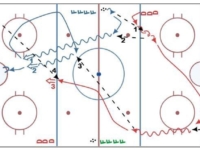Being a hockey coach can be a valuable, highly rewarding experience. Taking a group of kids and teaching them to play together and improve their skills both on and off the ice is a difficult job but can be a highlight for coaches who are doing it right. One thing to consider, however, is that when you recruit a player, you are also recruiting their parents. Hockey parents can be passionate, intense, and sometimes overbearing, so coaches must be careful with how they approach them and what steps to take to improve their child’s game.
Despite some of the frustration that can come out between coaches and parents, there are several things that any good coach will do to maintain healthy relationships and make his/her team successful.
Keep an open door
In the long run, most parents just want to see their kids succeed and have fun while playing hockey. In many cases, they may feel that their connection with their kid helps them to provide some coaching along the way. If a parent wants to join in on a practice or watch his or her kid play, keep that option open and allow them to participate.
While some parents may seem to have a little bit too much advice, remember that they are just trying to help, and do the best you can to listen to their ideas. You don’t necessarily have to implement anything they say, but if they feel that they are being heard, they will feel respected and will in turn respect you more.
Treat parents as your peers
While you may be the coach of the team, you should treat all of your players’ parents with respect, even if they have some characteristics, you aren’t too fond of. Starting things off on a sour note might cause hostility throughout the season, and that will ultimately have a negative effect on the player’s performance. Nobody wants to feel as though their parents are disrespected or be worried that they may get into a shouting match with the coach during the game.
If you are a parent, you probably understand how the others feel. Keep their perspective in mind when you are performing your coaching duties. They may not have the final say in the lineup cards, but they are an important part of their child’s life and they want to share the hockey experience just as much as you do.
Don’t engage in hostile situations
If a parent is yelling from the sidelines or confronts you in a fit of rage about one of your decisions, try to let them cool off before engaging them. It is counterproductive to get into a shouting match with them or exchange insults before discussing their concerns. Make it clear that you are going to remain calm and that you aren’t going to engage them until they meet at your level.
While some parents may have temper problems, many of them still have valid concerns about their child’s playing time or coachability. Once they calm down, hear them out and try to talk through it without raising your voice. Keeping a cool demeanor will encourage them to do so as well, and they may come to their senses and be more willing to see things from your point of view.
Invite them on the ice
A lot of hockey parents were former hockey players themselves, and many still play the game with their kids. It could be productive to invite parents onto the ice during certain practices so that they can give their advice – not only to their kid, but to the entire hockey team. You’ll always be the coach, but there’s nothing wrong with getting some feedback and pointers from other people who have played.
This gesture will also let the parents know that you respect them and that you are open to learning new things as well. It can allow players and parents to bond, improving their confidence and creating a peaceful, positive atmosphere for the entire team.
Set Your Limits
Before the seasons starts, you may consider talking to all the parents and letting them know what you expect out of yourself and out of them. When they have clear expectations, they are more likely to respect your personal rules and will be more hesitant to step out of line.
This serves to not only make your job easier, but also to take some stress off of the players on your team. Most of them don’t want to hear their parents yelling from the stands and setting these boundaries can save everybody from potential future embarrassment.
Establish clear-cut “no parents” time
As much as some parents may want to be involved in every second of their child’s development, it is simply not realistic to do so and can be detrimental in the long run. Let the parents know that there will be times and practices when it’s just the team and coaching staff. This is essential for creating disciplined, independent hockey players. It is helpful for the parents as well, as they will be able to let go of some of their bad habits.
Voice your concerns
If you are concerned about a certain player, whether on or off the ice, there is nothing wrong with contacting their parents and speaking about it. The parents may be able to offer some insight into what is wrong and may have ideas on how to set it right. Ultimately, the parents are the ones that know the player the best, and they can help you to understand the best ways to motivate and develop him.
You should look at these parents as your friends, if possible, and show concern for their children whom you are coaching. They want to know that you are passionate about your job and that you are willing to take the steps necessary to improve their son or daughter both as players and as people.
– J. Johannes






